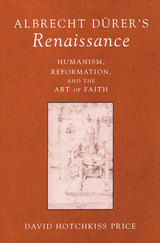

Renaissance humanism (often designated simply as humanism) was a European intellectual movement beginning in Florence in the last decades of the 14th century. Initially a humanist was simply a student or teacher of Latin and Latin literature. By the mid-fifteenth century humanism described a curriculum - the studia humanitatis - comprised of grammar, rhetoric, moral philosophy, poetry and history as studied via classical authors. It was only later in the twentieth-century that humanism was interpreted as a new philosophical outlook which encompassed human dignity and potential and the place of mankind in nature, since these were the kinds of themes on which humanists practiced their skills. The over-riding goal of humanists, who may be said to have valued the witnesses of reason and the evidence of the senses in reaching the truth over the Christian values of humility, introspection, and passivity, or "meekness" that had dominated European thought in the previous centuries, was to become eloquent in rhetoric. Beauty, a popular topic, was held to represent a deep inner virtue and value, and an essential element in the path towards God. The humanist movement developed from the rediscovery by European scholars of many Latin and Greek texts.
The humanists were in opposition to the philosophers of the day, the "schoolmen", or scholastics, of the Italian universities and later Oxford and Paris, whose methodology was derived from Thomas Aquinas, which revived a classical debate which referred back to Plato and the Platonic dialogues.
Social or civic humanism
Renaissance humanists believed that the liberal arts (art, music, grammar, rhetoric, oratory, history, poetry, using classical texts, and the studies of all of the above) should be practiced by all levels of "richness". They also approved of self, human worth and individual dignity.
This worth is found in the humanist belief that everything in life has a determinate nature, but man's privilege is to be able to choose his own nature. Pico della Mirandola wrote the following concerning the creation of the universe and man's place in it:
Humanists believe that such possibilities lead to the diverse ways of human development. Value is given to this uniqueness and encourages individualism.
Beliefs
As Neo-Platonism replaced the Aristotelianism of Saint Thomas Aquinas, attempts were made to join the great works of Antiquity with Christian values in a syncretic Christian humanism, such as those by Marsilio Ficino and Pico della Mirandola. Ethics was taught independently of theology, and the authority of the Church was tacitly transferred to the reasoning logic of the educated individual. Thus humanists constantly skirted the dangers of being branded as heretics.
One example of such pagan philosophy and Christian doctrine melding is found in The Epicurean, by Erasmus, the "prince of humanists:"
If people who live agreeably are Epicureans, none are more truly Epicurean than the righteous and godly. And if it's names that bother us, no one better deserves the name of Epicurean than the revered founder and head of the Christian philosophy [Christ], for in Greek epikouros means "helper." He alone, when the law of Nature was all but blotted out by sins, when the law of Moses incited to lists rather than cured them, when Satan ruled in the world unchallenged, brought timely aid to perishing humanity. Completely mistaken, therefore, are those who talk in their foolish fashion about Christ's having been sad and gloomy in character and calling upon us to follow a dismal mode of life. On the contrary, he alone shows the most enjoyable life of all and the one most full of true pleasure. (Erasmus 549)
This quote exemplifies the way in which the humanists saw pagan classical works such as the philosophy of Epicurus as being fundamentally in harmony with Christianity, rather than as a nemesis to be pitted against Christianity. Although Renaissance humanists were more accepting of pagan philosophy than their Scholastic contemporaries, they did not necessarily object to the idea that Christian understanding should be dominant over other modes of thought. Some humanists were even churchmen, most notably Pope Aeneas Silvius Piccolomini Pius II.
Humanists
Category:Renaissance humanists
Renaissance
Legal humanists
Humanist Latin
Humanism in Germany
Scholasticism
Humanism
No comments:
Post a Comment